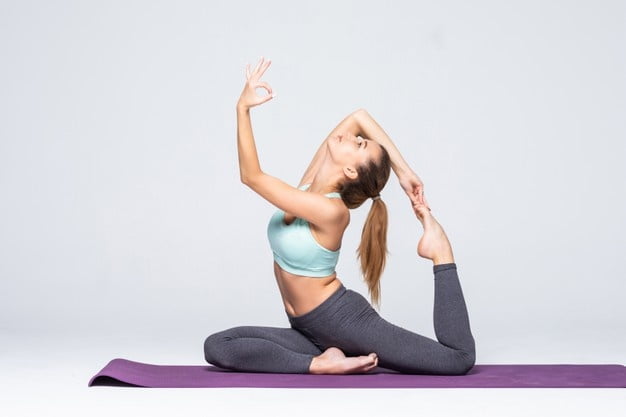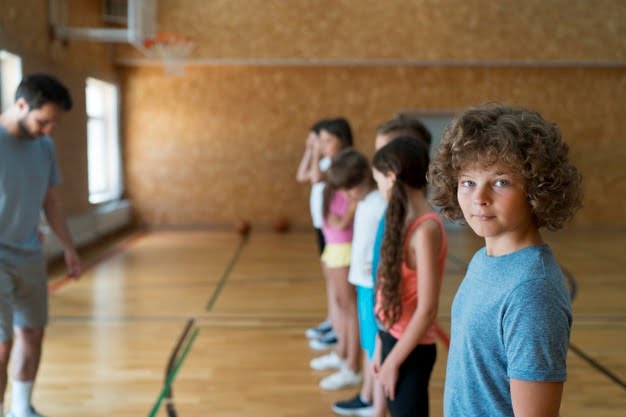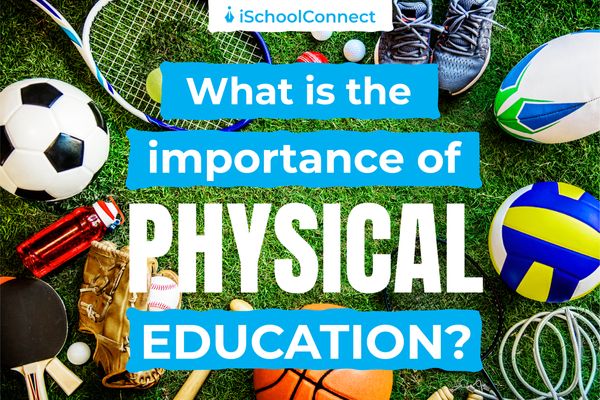Table of Contents
Physical education for physical fitness
The concept of physical education has evolved over the years. At first it was, well, related to physical exercises. But now, it has grown, while still keeping its traditional core values intact. Physical education today is as much about increasing self-awareness as it is about promoting physical fitness. It doesn’t just mean going through some routine physical exercises, but is also about learning how to master self-discipline, increase concentration, and become more focused on your life goals. Sounds interesting? Read on to learn how physical education contributes to our well-being and why is it so important!
History of physical education
The concept of physical education is not new to our culture. It also has found mentions in the epics and other books about mythology. The first evidence of physical education in ancient times was found to be the practice of yoga.
Yoga is a great way to get your whole body to move in harmony and challenge yourself to open your body further. The term ‘yoga’ comes from the Sanskrit language and means the union of individual consciousness with universal consciousness. Yogic practices aim to reach a greater state of mind, where one is free from worldly tensions. It aims to reach a point of harmony between a person’s mind, body, and soul.
Why is physical education important?
So far, we have talked about physical education as an abstract idea. But its definition goes something like this – physical education includes but is not limited to physical activities. It is education for the mind, body, and soul alike.
Nowadays, physical education has become mandatory in schools and is an important part of the curriculum.
So, what exactly is so important about physical education? Why is it such a stressed upon subject in recent times? Let us explore a few reasons why it is so crucial-

1. Motor development
The neural connection between our nerve fibers and the central nervous system primarily leads to motor movements. Motor movements help a person move and perform other tasks. They are also responsible for how quick or slow a person’s reflex is. While motor skills are something you are born with, you can also hone them over time by working out regularly. This will help you greatly enhance the quality of your life.
2. Emotional development
Emotions controls how a person leads his or her life. Emotions like happiness, anger, sadness, excitement, and love are essential to life. However, you can learn to manage emotions by taking part in sports or games. Sports impart several important values, like dedication, discipline, anger management, healthy competition, as well as learning to push yourself, which can greatly improve your the way you live your life.
3. Mental development
Mental health is as important as physical health, if not more. Poor mental health can be responsible for a wide variety of illnesses like hypertension, eating disorders, postural deformities, and gastrointestinal problems. Physical activity significantly reduces stress hormones, thereby promoting good mental health. Exercising also releases hormones known as endorphins, which are natural painkillers and mood lifters.
4. Social development
Human beings are social creatures. Social development is important because it gives us a sense of belongingness and helps us find our identity in the world. There are many sports and games that help incite these values in people. They are especially beneficial for those who want to learn valuable life lessons such as cooperation, teamwork, and empathy for others.
5. Moral development
Having good moral values is important to develop and grow as a human being. Being aware of what is right and what is wrong is essential. Taking part in sports helps instill this wisdom in people. Each sport comes with a list of its own rules and the participants know that deviating from any of those would lead to expulsion from the game. This also instills the need to follow certain essential rules and regulations in life.
6. Promotes healthy competition

It is important to understand that you will not win all competitions you participate in. Sometimes, people have to lose as well. But there is no reason to give up or start despising the person or team you competed against. Taking part in games and sports regularly habituates a person to the constant winnings and losses. This accustoms them to the ups and downs of life, and teaches them to should keep going irrespective of the end result.
7. Helps in exploring physical potential
Physical activities help people understand how much their bodies can endure before starting to show signs of stress. It is a good way of finding out about one’s potential. This can be done by increasing the resistance threshold in baby steps while working out.
8. Promotes an active and productive lifestyle
Taking part in sports helps people remain active and lead productive lifestyles. It keeps laziness at bay and often improves one’s perspective on life.
9. Cultural development
Sports help us understand our heritage better. By exposing the younger generation to traditional games, we make way for them to understand how the more complex forms of play have evolved. It also gives them insight into how people of the yesteryears have spent their lives and why simplicity in life is important.
Why is physical education a good career option?
There are plenty of career options available in the field of physical education, with the number of options growing every day.
It should be noted that a person can still pursue the field of physical education despite not being good at sports. It is a versatile profession and quite inclusive. Let us have a look at some of the career paths you can take up-
1. Sportsperson
Individuals who are good at sports can choose to be sportspersons in various games and athletics. It is a very lucrative field that one can pursue while following their passion.
2. Coach or teacher
A very popular profession, teachers or coaches are responsible for training and motivating their pupils. All sportspersons and teams for various games hire coaches to strategize and get the maximum out of all players. They help nurture and condition players into not just good sportspersons but also great individuals.
3. Dietician
As athletes need to follow a strict diet in order to enhance their performance, the profession of dieticians is very much in demand. The job of a dietician is very crucial in restoring the health of athletes without having them undergo any invasive procedures.

4. Sports medicine physician
Sports medicine is a completely different sector of the medical field, because sports-related injuries are usually different compared to other injuries. The job not only requires helping the injured individual recover but also ensuring that they are able to come back to the game soon.
5. Sportswriter
Sportswriters write for the sports column in newspapers and sports magazines. These professionals need to understand the sport they are covering thoroughly in order to break it down and make it easier for their readers to understand.
6. Sports photographer
The profession of sports photography is a rather versatile one. One can choose to be a full-time sports photographer or a part-time sports photographer. This is a great profession for artistic individuals who are interested in sports.
7. Sports reporter
Sports reporters work for television and radio channels. They can choose to collect news or present sports news.
What to do next
If you are someone who loves physical activity and fitness, you should seriously consider a career in physical education. Not only does the field have a relatively big job market (since not many people choose to specialize in it), but there is also a lot of scope for developing a full-time career in it.
If you have a misconception that the pay scale is not very exciting, consider the fact that personal trainers typically have multiple high-paying clients. If this is truly something you are interested in, do some more research about the field and find universities or institutions that provide certification or degrees in physical education.
Key takeaways
Physical education has evolved to encompass not only physical fitness but also self-awareness, discipline, and goal setting.
It is essential for motor, emotional, mental, social, moral, and cultural development.
Various career opportunities exist in the field, from sportsperson to sports medicine physician.
Physical education promotes a holistic approach to development, focusing on mind, body, and soul.
Found this article interesting? Please reach out to us regarding any help choosing the right courses and colleges for your career in physical education.
Liked this blog? Read next: 5 amazing career options in physical education!
FAQs
Q1. How long does it take to get a degree in physical education?
A Bachelors in Physical Education may take between 3-4 years, with some colleges offering 1-2 year courses as well.
Q2. Is physical education an easy degree?
No, while this field of study may have a reputation for being easy, it is as tough as any degree out there. Many subjects are covered under this type of degree, including but not limited to chemistry, physiology, anatomy, and more.
Q3. Is there a postgraduate option in physical education?
Yes, there are Masters degrees available in Physical Education.






